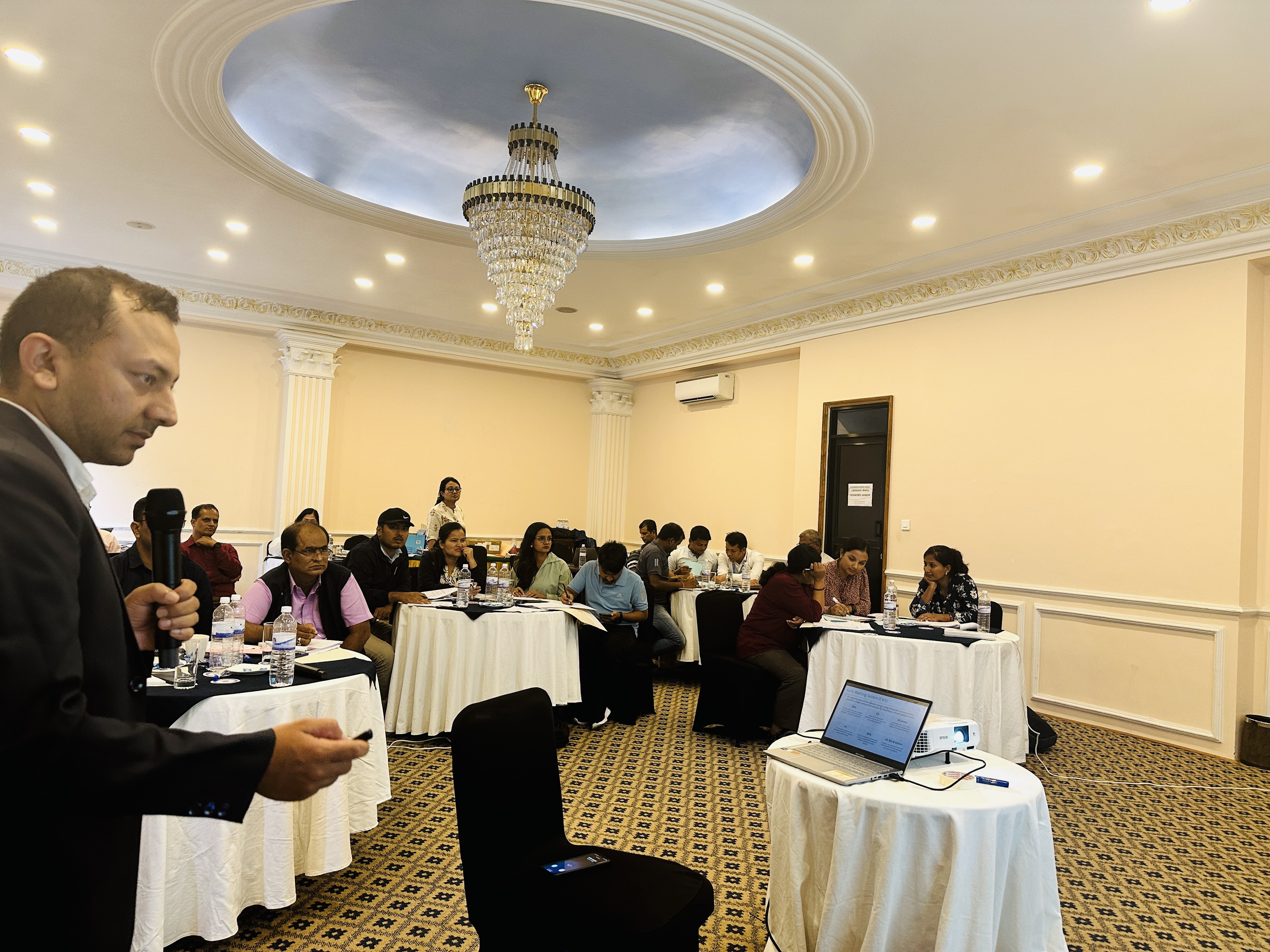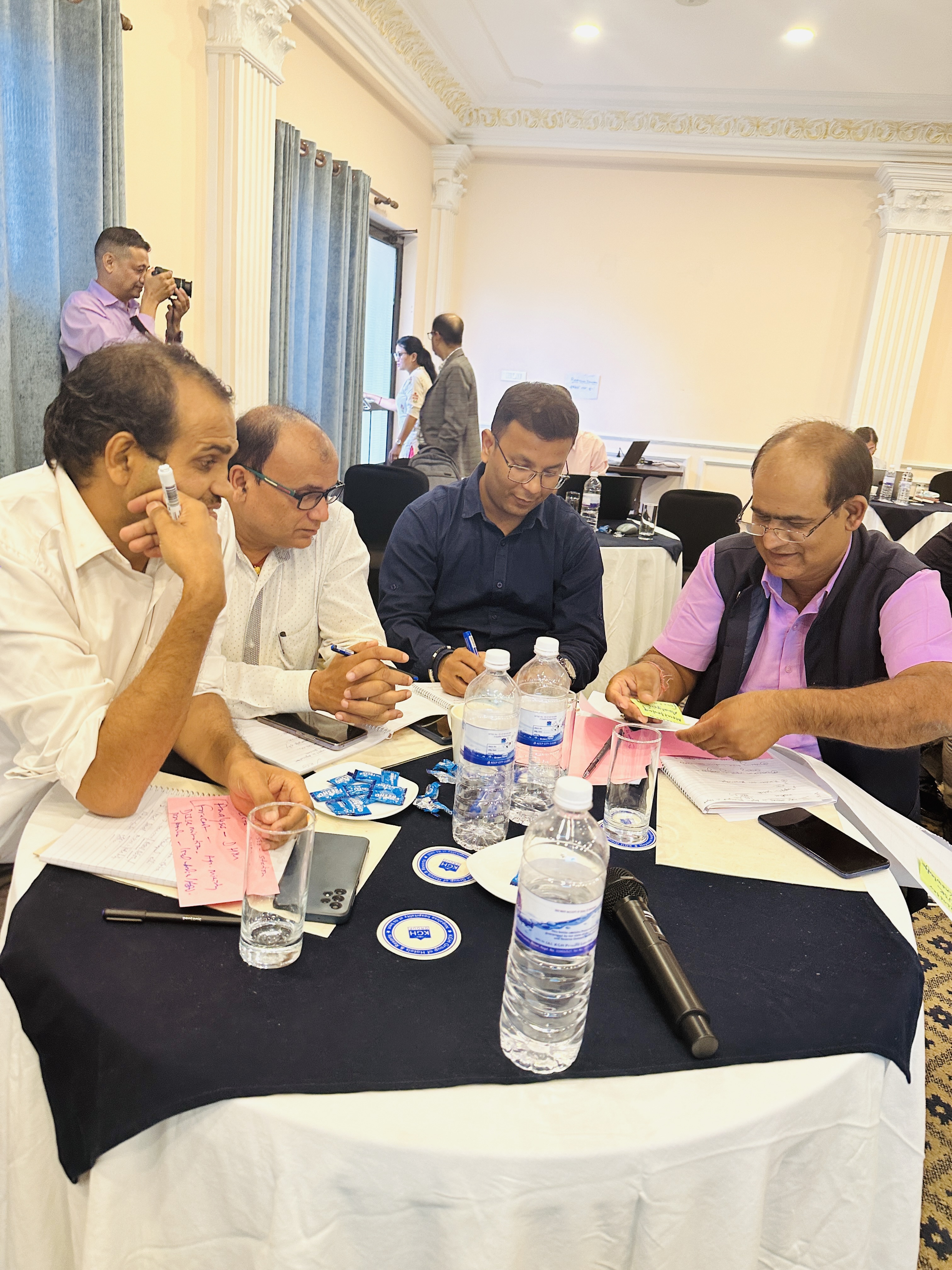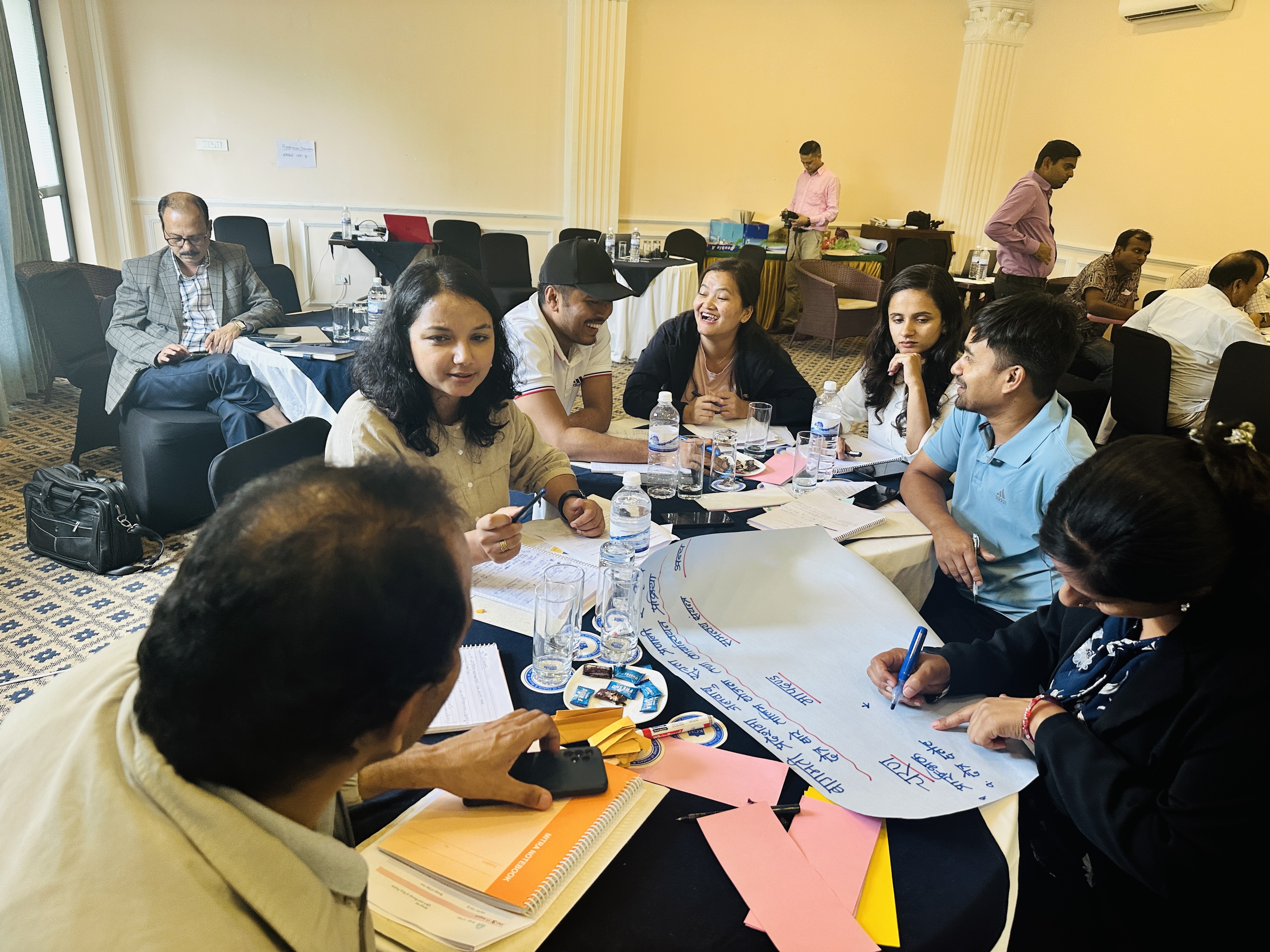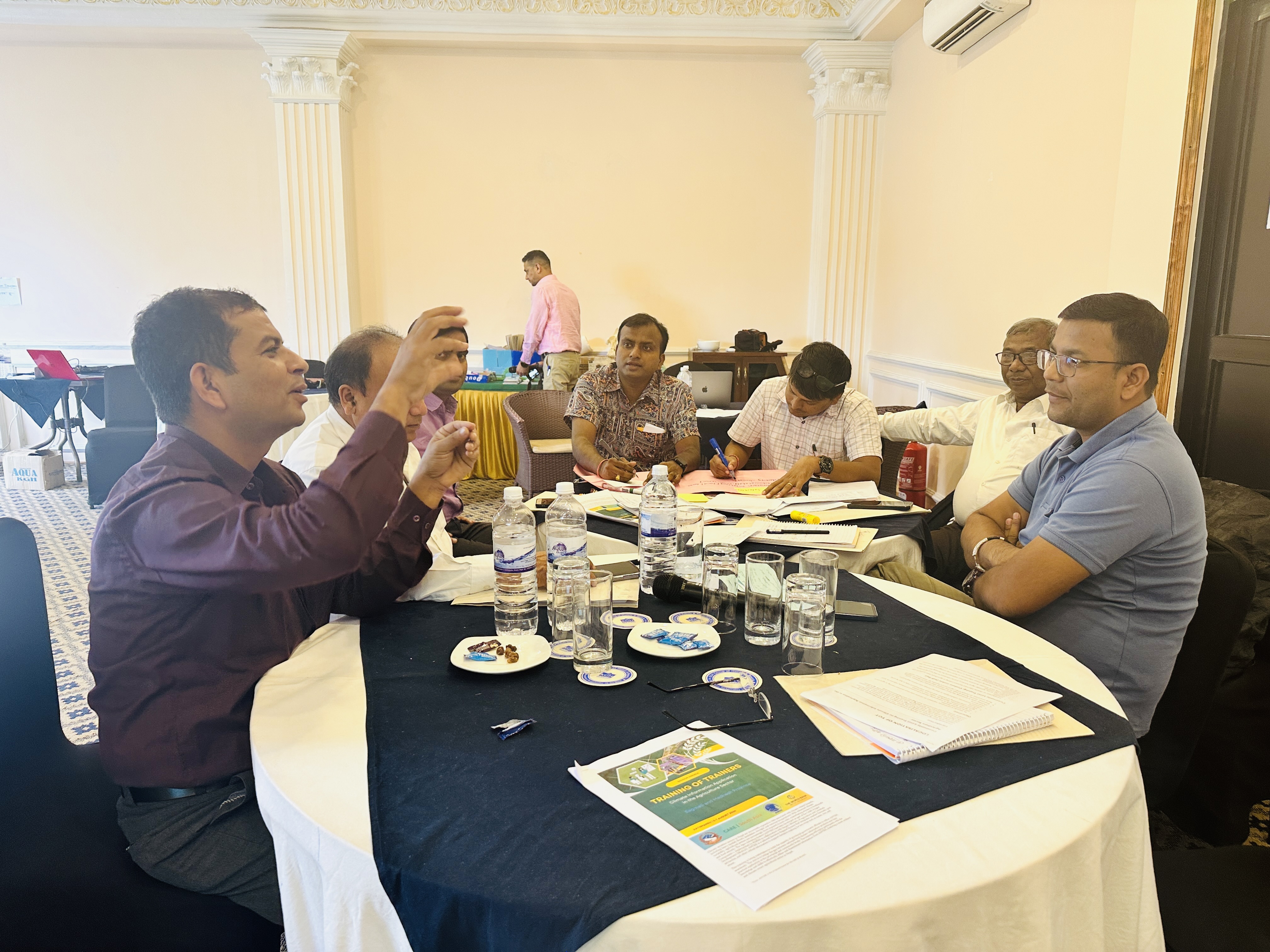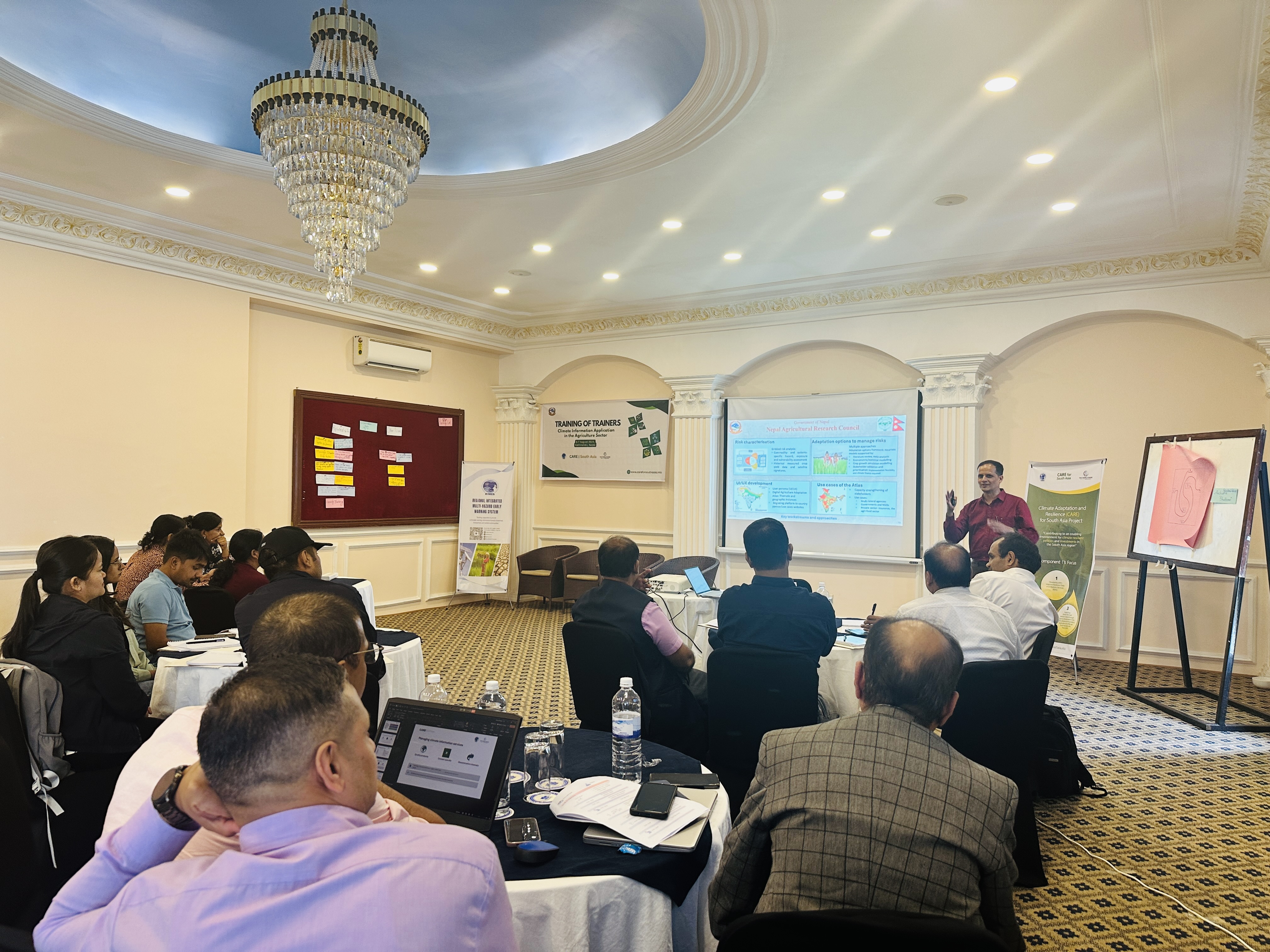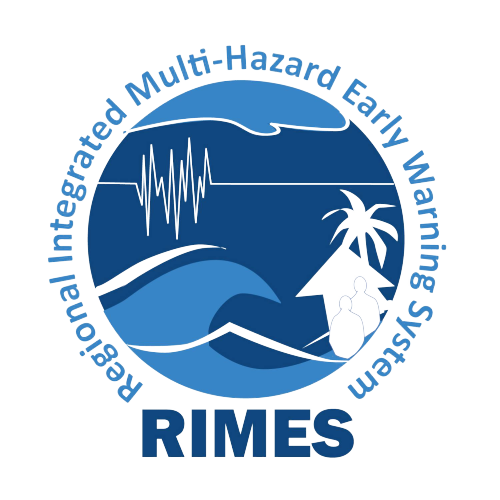A Training of Trainers on Climate Information Application in the Agriculture Sector was held from 5 to 7 August 2024 in Kathmandu, Nepal for agriculture officials from the Madhesh and Bagmati provinces.
The training equipped these provincial government officials with the knowledge and skills to fully utilize the web-based Agro-Advisory System (ADVISE) being co-developed by RIMES and Nepal’s Ministry of Agriculture and Livestock Development (MoALD). ADVISE integrates crop sensitivities to weather/climate and other environmental parameters and weather forecasts to assess potential risks to crops; pest advisories; and other critical information to support decision-making in crops management for key crops such as maize, rice, and wheat.
The training fostered a collaborative learning environment with participating provincial agricultural professionals learning not only from resource persons but also from each other through experiences and best practices. Moreover, the Training of Trainers yielded action plans for community-level training sessions in Madhesh and Bagmati Provinces, which are to be administered by the trained trainers in climate information application, with continuing guidance from RIMES and MoALD. These trained trainers will also take the lead in operationalizing ADVISE in their respective provinces.
To more effectively maximize the features of ADVISE, participants suggested that succeeding training materials should address specific climate challenges and agricultural practices in different provinces/agro-climatic zones in Nepal, and as relevant, incorporate beneficial indigenous and traditional knowledge in crops and weather/climate impacts management. In addition, community-level training materials should be in local languages/dialects. Where feasible, onward training should be expanded to other domains in agriculture such as livestock and horticulture.
CARE Component 1, through cooperation between RIMES and MoALD and with support from the World Bank, will conduct more training sessions at the provincial level to build the capacity of more provincial agricultural officers to interpret and apply climate information in managing opportunities and risks in agriculture.
